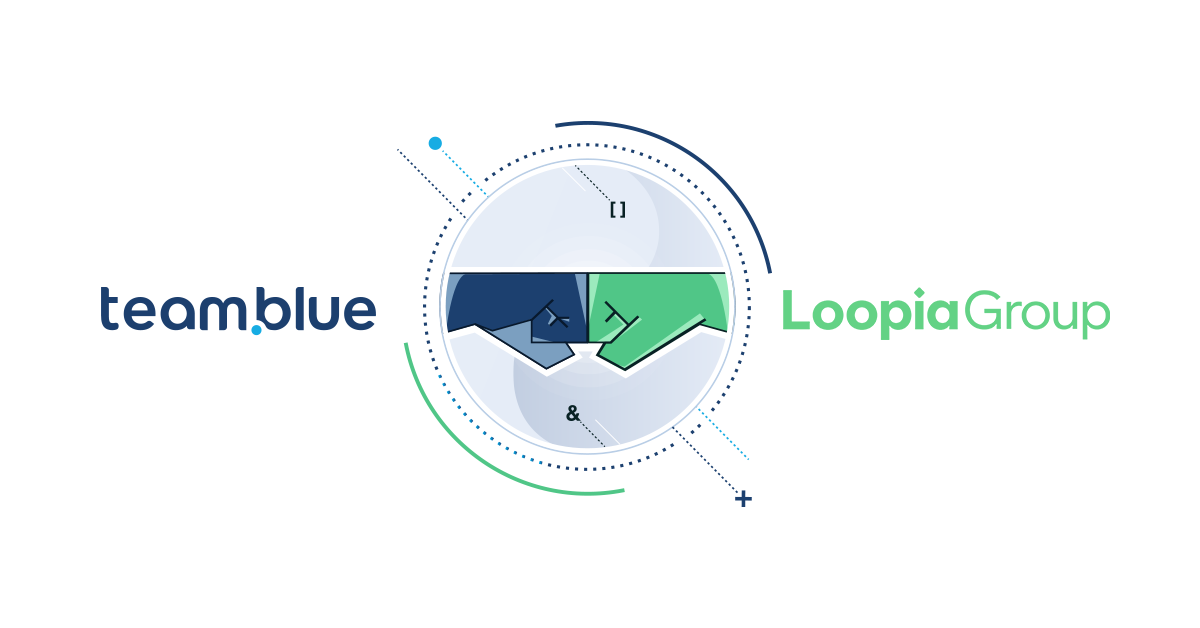The web hosting market in Europe is currently undergoing significant changes, driven by a wave of consolidation. Two high-profile acquisitions – the purchase of WebGlobe by group.one and the acquisition of Loopia by Team.blue – have attracted industry attention and indicate a growing trend toward combining forces to strengthen market positions. In this article, we take a closer look at these deals, their statistics and statements from decision makers from both companies.
The increasing consolidation of the industry in Europe is emerging several important groups-local giants that are taking over more markets and competing against each other in this kind of race. With so much saturation of hosting services in Western European countries, there is a tendency to target the eastern part of the continent. More announcements in our opinion are almost certain.

Group.one acquires WebGlobe
Group.one, one of Europe’s leading web hosting companies, announced the signing of an agreement to acquire WebGlobe from founder Igor Strečko and the Sandberg Capital fund. Group.one currently serves more than 1.5 million customers in Europe, offering a wide range of hosting and domain registration services. WebGlobe, founded in 1999, has a strong presence in Central and Eastern Europe, serving more than 100,000 customers.
Statistics and information:
Group.one:
Number of customers: more than 1.5 million
Area of operation: all of Europe
Services: hosting, domain registration, cloud solutions
WebGlobe:
Number of customers: more than 100,000
Area of operation: Central and Eastern Europe
Igor Strečko, founder of WebGlobe: “We are happy to join the group.one family. We believe that together we will be able to offer even better services and support to our customers.“
Daniel Hagemeier, CEO of group.one: “The CEE region is a vibrant space offering immense potential for providing digital solutions to small businesses. This strategic acquisition aligns perfectly with our growth ambitions. With Webglobe’s strong position in the region and talented team, we are confident in our ability to accelerate growth and innovation in this dynamic region.“

Team.blue buys Loopia
Team.blue, another giant in the hosting market, has announced the acquisition of Loopia Group, a leading hosting provider in Scandinavia and Central Europe. Team.blue serves more than 2 million customers across Europe, offering a wide range of hosting services through its multiple brands. Loopia, known for its innovative solutions, serves about 500,000 customers, mainly in Sweden and the Czech Republic.
Statistics and information:
Team.blue:
Number of customers: more than 2 million
Area of operation: all of Europe
Services: hosting, domain registration, cloud solutions
Loopia:
Number of customers: about 500 thousand
Area of operation: Scandinavia, Central Europe
Statements from decision makers:
Sara Laurell, CEO of Loopia: “Joining Team.blue opens up new opportunities for growth and innovation. We are excited about the prospect of working together to develop even better solutions for our customers.“
Jonas Dhaenens, CEO of Team.blue: “The integration of Loopia Group into team.blue opens up a world of possibilities for the European digital services industry, extending our reach into some of Europe’s most dynamic sectors and creating a unique offering to more than three million customers across more than 20 countries, now backed by a team of 2.700 exceptionally talented individuals.“
Both deals are evidence of a growing trend toward consolidation in the hosting industry. Companies are seeking to increase their market share and their ability to offer more advanced and comprehensive services by joining forces with other players. Consolidation allows them to optimize costs, increase operational efficiency and of course…. increasing the marketshare of individual groups.
For customers, this often means better service quality, access to a wider range of products, and the stability that comes from the greater financial and technological capabilities of the merged companies. On the other hand, it can lead to less competition in the market, which can affect service prices in the long run. And it usually does.



